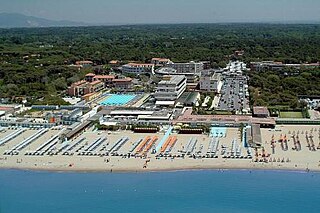
Tirrenia is a frazione (parish) of Pisa, Tuscany, Italy with a population of 3,112 inhabitants. Immersed in the pine forest of the "Litorale Pisano" and in the coast of Ligurian Sea, Tirrenia is in the northern side of the coast of Tuscany and next to the Parco Naturale Migliarino, San Rossore, Massaciuccoli, between Pisa and Livorno.

Amedeo Nazzari was an Italian actor. Nazzari was one of the leading figures of Italian classic cinema, often considered a local variant of the Australian–American star Errol Flynn. Although he emerged as a star during the Fascist era, Nazzari's popularity continued well into the post-war years.

Light in the Darkness is a 1941 Italian drama film directed by Mario Mattoli and starring Fosco Giachetti, Alida Valli and Clara Calamai. The film's sets were designed by the art director Ottavio Scotti. It was shot at the Palatino Studios in Rome.
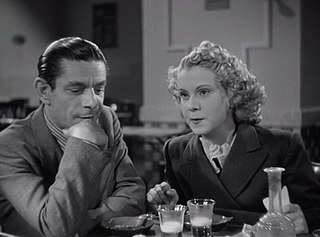
Lively Teresa is a 1943 Italian "white-telephones" comedy film directed by Mario Mattoli and starring Lilia Silvi, Roberto Villa and Carlo Ninchi. It was produced in the style of the White Telephone comedies popular during the Fascist era.
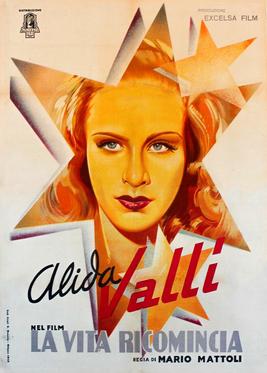
Life Begins Anew is a 1945 Italian melodrama film directed by Mario Mattoli and starring Alida Valli, Fosco Giachetti and Eduardo De Filippo. It was the third most popular Italian film during 1945-46 after Roberto Rossellini's Rome, Open City and Partenza ore 7, a comedy always directed by Mattoli.
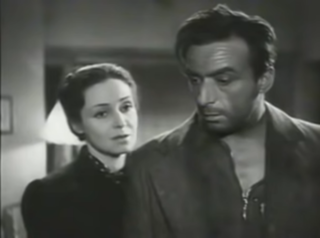
Bengasi is a 1942 Italian war film directed by Augusto Genina and starring Fosco Giachetti, Maria von Tasnady and Amedeo Nazzari. The film was shot at Cinecittà in Rome. The film was a propaganda work, designed to support the Fascist regime of Benito Mussolini. It portrays Allied atrocities in "Bengasi Italiana", such as the murder of a peasant by a group of drunken Australian soldiers.

Red Passport is a 1935 Italian historical drama film directed by Guido Brignone and starring Isa Miranda, Filippo Scelzo and Ugo Ceseri. A group of Italian immigrants to South America join in a revolution.

Mino Doro was an Italian actor who appeared in more than a hundred films between 1932 and 1970. Doro generally played supporting and character roles. He appeared as a blackshirt in the 1934 Fascist propaganda film The Old Guard.
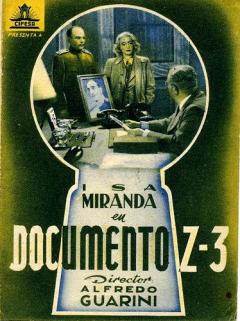
Document Z-3 is a 1942 Italian spy film directed by Alfredo Guarini and starring Isa Miranda, Claudio Gora and Luis Hurtado. It was shot at the Fert Studios in Turin and on location at an airfield which later became Turin Airport. The films sets were designed by the art director Boris Bilinsky. It was one of three Miranda films directed by Guarini that helped re-establish her in Italian cinema following her return from a largely unsuccessful spell in Hollywood. Many critics were not impressed with the film, feeling that Miranda had not recovered the spontaneity of her pre-Hollywood films. This is considered the first production on which Federico Fellini worked, uncredited, as a screenwriter.
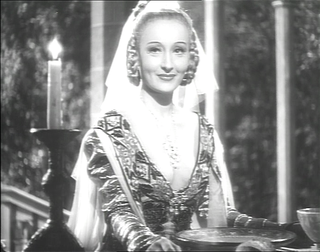
The Jester's Supper is a 1942 Italian historical film directed by Alessandro Blasetti and starring Amedeo Nazzari, Osvaldo Valenti and Clara Calamai. It was based on a play of the same title by Sem Benelli, which had later been turned into an opera by Umberto Giordano. Like the play, the film is set in the 15th century Florence of Lorenzo the Magnificent and portrays a rivalry that leads to a series of increasingly violent practical jokes.

Under the Southern Cross is a 1938 Italian drama film directed by Guido Brignone and starring Antonio Centa, Doris Duranti and Enrico Glori. The film is set in Italian-occupied Abyssinia following the recent Italian victory there. It was one of a sequence of eight films set in Italy's African Empire during the Fascist era that were released between 1936 and 1939. The film is a propaganda piece designed to support Fascist policy on empire and concerns about inter-racial romances.

Hollywood on the Tiber is a phrase used in a June 26,1950 Time magazine article to describe the period in the 1950s and 1960s when the Italian capital of Rome emerged as a major location for international filmmaking attracting many foreign productions to the Cinecittà studios. By contrast to the native Italian film industry, these movies were made in English for global release. Although the market for many of these films was primarily American, they enjoyed widespread popularity in other countries, including Italy.
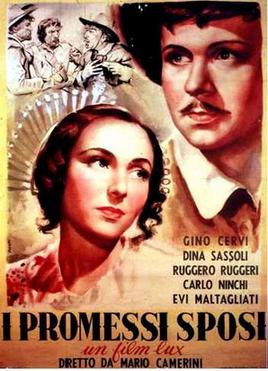
The Betrothed is a 1941 Italian historical drama film directed by Mario Camerini and starring Gino Cervi, Dina Sassoli and Ruggero Ruggeri. It is an adaptation of the 1827 novel The Betrothed by Alessandro Manzoni. The film's producers organised a competition to select the lead actress which was modelled on the hunt for Scarlett O'Hara by the American producer David O. Selznick for Gone With the Wind. It belongs to the movies of the calligrafismo style.

The Fornaretto of Venice is a 1939 Italian historical drama film directed by Duilio Coletti and starring Roberto Villa, Elsa De Giorgi and Clara Calamai. It is an adaptation of the 1846 play of the same title by Francesco Dall'Ongaro, which has been adapted into films on several occasions. It was made at the Cinecittà Studios in Rome.
Gemma Bolognesi was an Italian actress. She appeared in more than thirty films from 1916 to 1954.

The Ungrateful Heart is a 1951 Italian melodrama film directed by Guido Brignone and starring Carla Del Poggio, Frank Latimore and Gabriele Ferzetti. It takes its name from the Neapolitan song "Core 'ngrato". It was released in West Germany in 1953.

The Ten Commandments is a 1945 Italian drama film directed by Giorgio Walter Chili. It features an ensemble of Italian actors in episodes based on the Ten Commandments.
Stephen Gundle, is a British cultural historian and film scholar. He is a Professor of Film and Television Studies at the University of Warwick. He is best known for his books and articles on Italian culture, politics and the mass media.

Ente Nazionale Industrie Cinematografiche (ENIC) was an Italian film production and distribution entity that operated between 1935 and 1956.
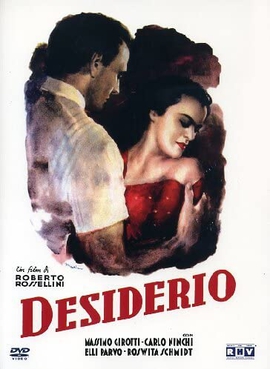
Desire is a 1946 Italian melodrama film directed by Marcello Pagliero and Roberto Rossellini and starring Massimo Girotti, Elli Parvo and Carlo Ninchi.





















